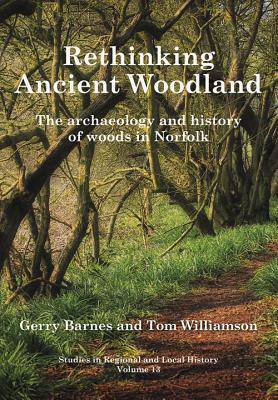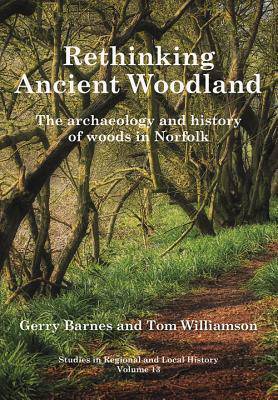
- Afhalen na 1 uur in een winkel met voorraad
- Gratis thuislevering in België vanaf € 30
- Ruim aanbod met 7 miljoen producten
- Afhalen na 1 uur in een winkel met voorraad
- Gratis thuislevering in België vanaf € 30
- Ruim aanbod met 7 miljoen producten
Zoeken
Rethinking Ancient Woodland
The Archaeology and History of Woods in Norfolk
Gerry Barnes, Tom Williamson
€ 32,95
+ 65 punten
Omschrijving
'Ancient woodland' is a term widely used in England for long-established semi-natural woods, shaped by centuries of traditional management. As an official designation, it describes woods which have existed since the early seventeenth century, and which today contain a distinctive range of plants which find it hard to colonize more recently wooded ground. Such woods are often assumed to provide a direct link with the natural vegetation of England, as this existed before the virgin forests were fragmented by the arrival of farming. This groundbreaking study questions many of these assumptions. Drawing on more than a decade of research in Norfolk, the authors emphasize the essentially unnatural character of ancient woods. This important volume will be essential reading for all those interested in the history of the English countryside and environmental history.
Specificaties
Betrokkenen
- Auteur(s):
- Uitgeverij:
Inhoud
- Aantal bladzijden:
- 288
- Taal:
- Engels
- Reeks:
Eigenschappen
- Productcode (EAN):
- 9781909291584
- Verschijningsdatum:
- 1/04/2016
- Uitvoering:
- Paperback
- Formaat:
- Trade paperback (VS)
- Afmetingen:
- 168 mm x 241 mm
- Gewicht:
- 612 g

Alleen bij Standaard Boekhandel
+ 65 punten op je klantenkaart van Standaard Boekhandel
Beoordelingen
We publiceren alleen reviews die voldoen aan de voorwaarden voor reviews. Bekijk onze voorwaarden voor reviews.











